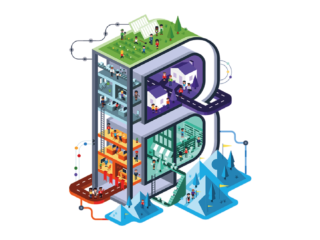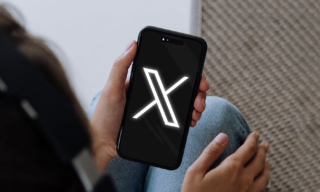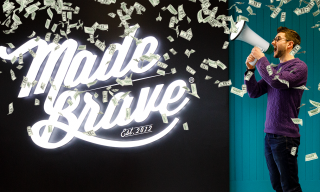With all the talk around the climate crisis and social activism (not to mention all that’s happening with COP26 here in Glasgow), brands are making a lot of promises. But how do we really know whether these promises are being kept? We need a new standard for keeping brands accountable. We need a way to see through the veneer and keep tabs on the actions brands are actually taking. That’s where the B Corp Certification comes in.
Hold on, what’s a B Corp?
The B Corp is a legal certification with a whole host of rigorous social and sustainability requirements assessed by standards analysts at B Lab, which is a non-profit. It all starts with an assessment that helps businesses, start-ups, and even sole traders measure and manage their social and environmental impact. There are also legal requirements that have to be met.
Put another way, the B Corp is the gold standard for measuring a business’s impact on people and the planet. It’s a big shiny badge for purpose-driven brands to show they’re putting their convictions into action to benefit all stakeholders (think customers, employees, and local communities)—and not just their shareholders.

Why is the B Corp so important for brands?
As we’ve said elsewhere, brands are like people in so many ways. And just like people, brands are born, they grow, and mature from one life stage to the next. As they mature and grow, their potential for impacting the world grows with it. That’s why purpose-driven brands are transforming the way they work as they consider their triple bottom line:
Profit – It goes without saying that financial performance is important for any organisation, but there we go—we said it anyway. Last year, brands like Lego, Salesforce, and Levi’s found that taking on sustainability initiatives actually drove them to be more successful than ever. Imagine that.
People – This one is all about social responsibility. Focusing on people requires businesses to start doing more for their people, their customers, and their communities. Some examples might include committing to fair hiring practices, creating policies around diversity & inclusion, or even partnering with non-profit organisations that share a common purpose.
Planet – With more than 30,000 people arriving this month in Glasgow for COP26, it’s safe to say the climate crisis is more than front-of-mind at the moment. While much of the problem lies with global energy companies and manufacturers, we should all know by now we can’t just leave it up to them to make a difference—smaller businesses like us (hello 👋) can and should, too.
Our approach to branding is founded on building brands from the inside-out. Fostering culture, not just fame.
But the days when ‘culture’ meant office drinks and bean bags are over. Today it’s the businesses who measurably prioritise sustainability, diversity and wellbeing that can really claim to have a meaningful culture. This is why B-Corp is key.
Where non-profits and governments can only do so much to further these efforts, brands like Etsy, Ben & Jerry’s, Patagonia, illy, Sipsmith, and nearly 5,000 smaller brands from around the globe have been certified as leading the business world and being forces for good.

Can smaller brands and upstarts really make an impact?
Well, it depends what you mean. Consider the following ocean-based analogy – big waves are always going to be created by big brands with enormous budgets, thousands of employees, factories, global supply chains, etc, etc, etc—you get the idea. Now, what about one small business? Probably not, right? But what if there were thousands of them? And what if they all had the same goals and were judged by the same rigorous standards? That’s how tiny ripples make big waves.

Free the ripple (aka we’re applying for the B Corp!)
While we’re admittedly quite proud of the progress we’ve made in getting our do-gooding ducks in a row, our small-ish team of 50+ people recently decided to officially throw our collective hats into the B Corp ring.
When it comes to brand purpose, I think the time for lip service is over. Passive consumerism is on its way out. People are paying attention and they want accountability and strong governance. They expect brands to do whatever it takes to put their beliefs into action. This is the new standard for purpose-driven brands.
How to get started on your B Corp
So far it’s been no easy task if we’re being honest. But if you’re serious about getting your B Corp Certification or if you just want to find out more you might want to check in with our pals at Futureproof who can help you get started and keep you on track.



